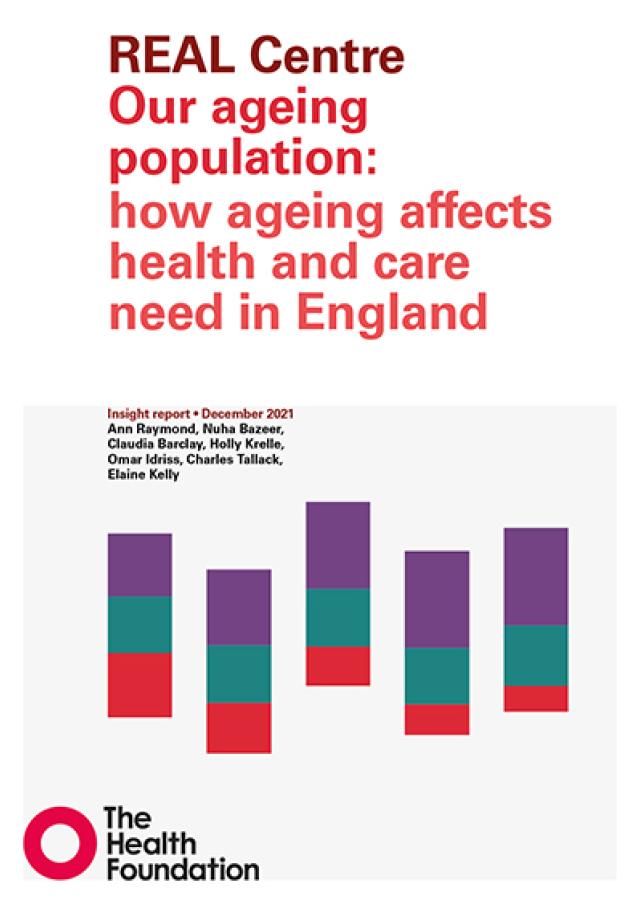Our ageing population How ageing affects health and care need in England
December 2021

Key points
-
England’s population is ageing. In the next 25 years, the number of people older than 85 will double to 2.6 million. An ageing population might lead to the presumption that there will be an increased need for health and social care services. But the reality is more complicated.
-
The proportion of older people who need social care support at any given age has fallen. This means a higher proportion of older people are now able to live independent lives. Although demand is still increasing overall, this fall in the proportion of older people needing social care has counterbalanced some of the increase driven by our ageing population.
-
However the proportion of older people aged above 75 with a long-term condition has risen, and their needs are likely to become more complex, leading to increased demand for NHS services.
-
These findings suggest that older people are living with an increased number of long-term conditions, typically managed through the NHS, without on average needing more support with social care. But those who do have social care needs may also be managing an increased number of long-term conditions.
-
As government seeks to reform adult social care, policymakers need to be aware of the complexities involved in predicting future demand – rather than assuming social care demand will increase in correlation with increased prevalence of long-term health conditions.
England’s population is ageing. In the next 25 years, the number of people older than 85 will double to 2.6 million. In many ways this is something to celebrate. However, as people age the risk of developing illnesses and becoming frail increases, leading to greater need for health and social care. But does our ageing population mean an inevitable rise in demand and the costs of care? As this report explores, the reality is more subtle and complex.
Our report examines this dynamic by analysing changes in two measures of need:
- an estimate of social care need, drawn from the English Longitudinal Study of Ageing (ELSA)
- prevalence of long-term conditions, as a proxy for health and health service demand.
It explores how health and care needs change with age, how the relationship between need and age has changed over time and how long-term conditions and social care needs interact.
The report includes five key insights for policymakers and system leaders, and highlights the complexities involved in predicting future demand for health and social care based on demographic changes.
Cite this publication
What does England's ageing population mean for health and social care needs?
Further reading
Work with us
We look for talented and passionate individuals as everyone at the Health Foundation has an important role to play.
View current vacanciesThe Q community
Q is an initiative connecting people with improvement expertise across the UK.
Find out more


